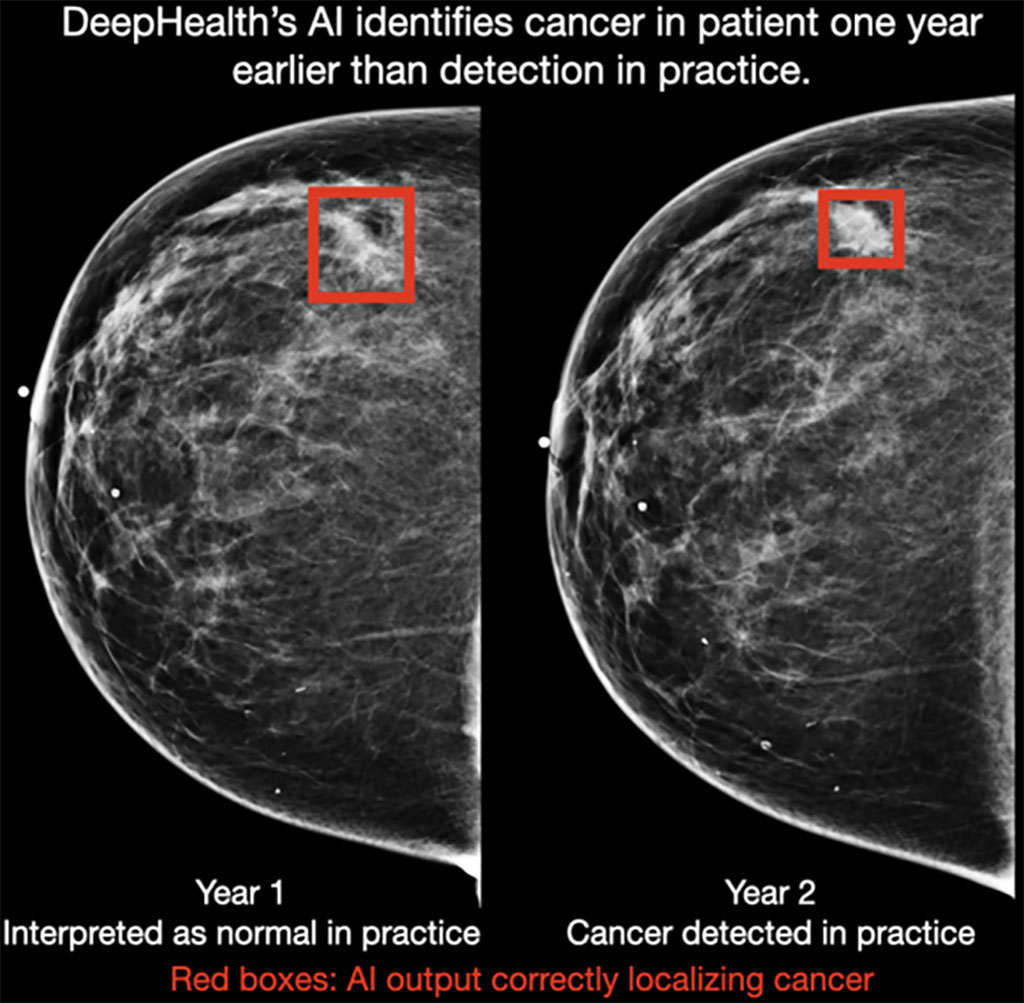Novel AI Algorithm for Mammography Interpretation Can Successfully Spot Breast Cancer Years Before Radiologists
By MedImaging International staff writers
Posted on 13 Jan 2021
A novel artificial intelligence (AI) algorithm for mammography interpretation has demonstrated the ability to detect breast cancer a year or more earlier than current practice.Posted on 13 Jan 2021
DeepHealth (Cambridge, MA, USA), a wholly owned subsidiary of RadNet, Inc. (Los Angeles, CA, USA), compared its AI to five full-time, breast-fellowship-trained expert radiologists reading the same screening mammograms. The software exhibited higher performance than all five radiologists, and the results suggest that the AI could help detect cancer one to two years earlier than standard interpretation in many cases.

Image: DeepHealth`s AI identifies cancer in a patient one year earlier than detected in practice (Photo courtesy of DeepHealth)
Additionally, the software showed promising generalization capabilities, demonstrating strong performance when tested across clinical sites and populations that were not directly involved in training the AI algorithms. While AI holds tremendous promise for improving screening mammography interpretation, there remain substantial challenges in developing expert-level AI. The new study by DeepHealth demonstrates progress in resolving these challenges.
“Reaching world-class performance requires a new way of building AI,” said Gregory Sorensen, M.D., CEO, and co-founder of DeepHealth. “The brute-force methods that have worked so well in other domains, such as self-driving cars or game playing, where data is plentiful, have not translated effectively to many parts of medicine, where human data is often scarce. For example, to train the technology for better detection, AI algorithms must be developed from annotated data where the cancer status is known. Such data can be difficult to obtain. Then, to validate performance, the AI should be tested across different clinical sites and patient populations in different scenarios.”
“We have developed an approach that mimics how humans often learn by progressively training the AI models on more difficult tasks. By leveraging prior information learned in each successive training stage, this strategy results in AI that detects cancer accurately while also relying less on highly-annotated data,” said lead author Bill Lotter, Ph.D., CTO, and co-founder of DeepHealth. “Our approach and validation extend to 3D mammography, which is particularly important given its growing use and the significant challenges it presents for AI.”
Related Links:
DeepHealth
RadNet, Inc.






 Guided Devices.jpg)







